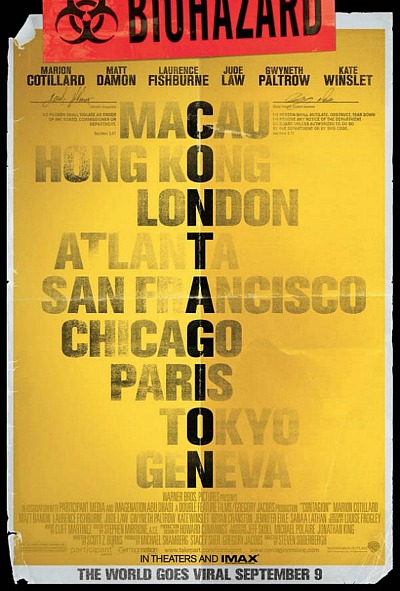For whatever reason it’s only just hit me that Martin Scorsese‘s Letter to Elia, a profoundly personal exploration of not only Elia Kazan‘s life and career but the influence his films have had upon Scorsese almost his entire life, is playing for free on pbs.org. If you haven’t seen it and you regard yourself as any kind of Movie Catholic, you must watch it as soon as you can. Who knows? Maybe they’ll take it down tomorrow or next week.
Daily
Live Geeks, T-Shirts, Mandals, etc.
I’d like to catch the ComicCon Cowboys & Aliens screening (which my Universal p.r. pally wasn’t able to get me into), but otherwise it feels just fine not being in San Diego as we speak. Possible compensation: A livestream feed from the Entertainment Weekly guys and NowLive. A little Dave Karger and Anthony Breznican is part of the deal, apparently.
Got Abs?
Very impressive sit-up and leg-lift regimen. Seriously. You have to figure some Ford rep said to the milk guys, “Okay, but a torso shot. The moustache is white. People will see it. No closeup required.”
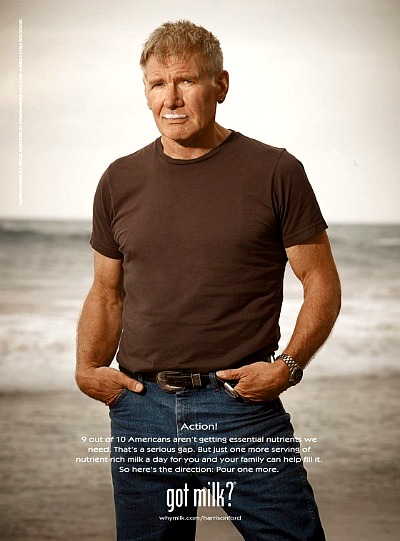
Underlying Agenda?
“Is Captain America, as some have suggested, a symbol of American proto-fascism or a Tea Party hero before the fact?,” asks New York‘s Andrew O’Hehir. “One answer to that question is to say that it’s a stupid question to ask about a comic-book hero and another, given the overall left-libertarian leanings of the Marvel universe, is to say no.
“I’m not sure either answer is adequate in the long run, but this origin story effectively ducks the question, by pointing out that Captain America was a weapon created in a moment of global emergency. He’s unquestionably an argument for American exceptionalism, in that he seems cooler, more humble, more self-sacrificing and just flat-out nicer than those who sought to enslave the world. That’s an important aspect of our national mythology, and Captain America is a nostalgic tribute to the time when it still felt true.”
Could a perception that Captain America is a veiled rightwing movie on some level be an unacknowledged, underlying reason why some critics are pissing on it? If this is a factor then I can only emphasize my agreement with O’Hehir and repeat what I said yesterday, which is that it “dream[s] a little dream about what it was to be a true believer during World War II, and to be a kind of goody two-shoes type of guy who wants to serve and salute and defeat the bullies. It’s not in the least bit ‘realistic,’ of course, but it’s a highly sincere and convincing visitation of an imaginary yesteryear.”
Shame on the enemies of this film. It’s simply too well made and too finely honed and harmonized to dismiss as “just another superhero movie.”
Your Bags Come Out First
Suddenly departed MSNBC guy Cenk Uygur explained tonight on his Young Turks show why he believes MSNBC honchos didn’t invite him to stick around. One reported reason is that Al Sharpton (who may take over Uygur’s former 6 pm slot) recently drew somewhat higher ratings. Uygur doesn’t touch the Sharpton factor but to me his interpretation of MSNBC’s management mentality sounds perceptive.
“[MSNBC] didn’t want to challenge power,” he explains. “The problem with the mainstream media is they’re desperate for access, they don’t challenge the government, they don’t challenge power. And it’s one thing when they give you [that] speech and you’re not sure that it’s true, but when they act upon the speech you’re SURE that it’s true. The point of this show was truth-telling, and you’re supposed to challenge the government…that’s the role of the media.”
Pas si vite, Bradley!
I learned this morning that Bradley Cooper isn’t the only youngish Hollywood hotshot who’s fluent in French.
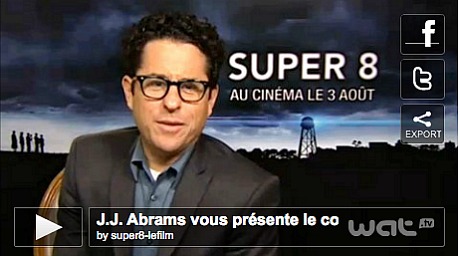
Saddest Video Store
I’ve been popping in and out of West L.A.’s Laser Blazer since the early ’90s, first to buy laser discs and then DVDs and Blurays. And these days the store (located at 10587 West Pico Blvd, two blocks east of Overland) is a remnant of what it once was. Business is down, the mood is down, excess inventory is being sent back to distributors and the air conditioning is on the fritz, and in fact hasn’t been repaired for several weeks. And it’s hot outside.
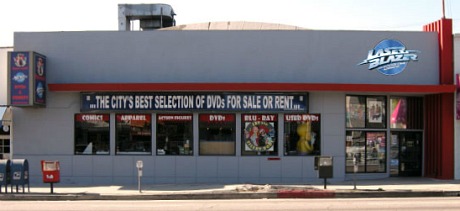
I’m sorry to see an old friend wither and die. I wish I could do something to help, but what could that be exactly? Video retail revenue is dropping all over. Other L.A. video stores like Vidiots, Cinefile and Amoeba are hanging on (or so it seems), but it seems as if Laser Blazer is hurting a bit more than most, obviously due to Netflix-by-mail and streaming downloads but also the location, which has little pedestrian traffic. (Parking has never been a problem.)
I like to roam around a video store and shoot the shit with the counter guys about this or that film, but I guess that kind of behavior or social appetite is dying also.
Last January owner Ron Dassa, looking to save money, partitioned the original store space into a much smaller space in order to rent out two other partitioned areas. One is being used by an aerobics business; the other is unoccupied. Laser Blazer’s store space feels cramped, bunker-like. The last time I was there it felt like a closet without the a.c. (The staffers had the front door open, at least.)
I dropped by a week or so ago to by a DVD of The Best Years of Our Lives. Ivan Infante, a screenwriter and filmmaker who’s been the store’s buyer for I-forget-how-many-years, said they’re out of it, and that it’s not re-orderable. This would have been an unheard-of scenario two or three years ago. Today I asked if they had the Twilight Zone Bluray boxes, and the guy said only Season #4. So the hell with it. What’s the point any more? No air-conditioning and a diminishing inventory. I’ll just go order online or go to Ameoba or Best Buy. Or buy Hulu or Netflix or Amazon downloads, although I really hate the quality of the online streaming I’ve seen so far.
I’m sorry it’s come to this, but a place I used to think of as a kind of home is giving up the ghost, and there doesn’t seem to be anything to do or say except…you tell me. If I could clap my hands three times and convert Laser Blazer into the place it was three or four years ago, I would.
Orange Touch
Roughly three months hence Eureka Video will release a Bluray of Orson Welles‘ Touch of Evil (1958) with six different versions of the film, which really amounts to three versions presented in both 1.37 and 1.85 aspect ratios. One, the 96-minute 1958 theatrical version. Two, the 1958 preview version that runs 108 minutes. And three, the 1998 reconstructed version, running 112 minutes, that was put together by Walter Murch, Bob O’Neil and Bill Varney.
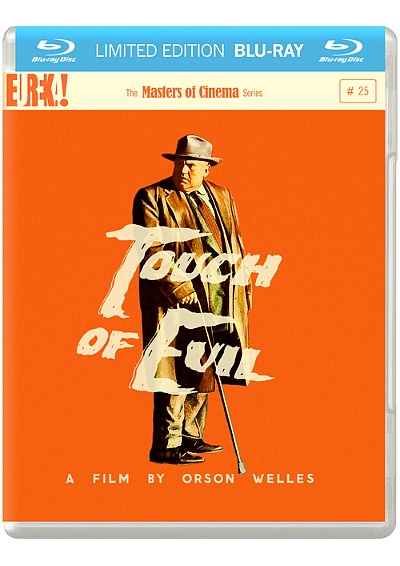
Two aspect ratios for each version…so hardcore, so film-nerdy. But the orange backdrop is, for me, a problem. To advertise a revered classic film taking place in a Mexican border town and shot in the gritty environs of Venice, California, Eureka chose one of the most needlessly intense and eye-sore-ish colors in the spectrum? A color that says traffic cones and prison jump suits?
Perhaps It Never Was
I’ve just written the following in a comment thread: “Nobody believes in a righteous, true-blue America any more. Certainly not in the way everyone did during World War II. ‘America the Beautiful’ has been over, patriotically-speaking, since the mid ’60s. What Captain America does, curiously, to dream a little dream about what it was to be a true believer during World War II, and to be a kind of goody two-shoes type of guy who wants to serve and salute and defeat the bullies, etc.
“Maybe that’s the door or window that allowed me to get into this, or that let Captain America into my realm…whatever. In a kind of a dopey, stylized way it recreates the special glow of that gone-forever era, or at least as it might have been. I was saying to myself that ‘this is kind of silly, of course, but Joe Johnston and his team really believe in this yesteryear dream-reality themselves. Because they’re selling me on it…me!’
“It’s not just a very heartfelt comic-book film, but one that seems to fly by as quickly and fleetingly as a comic book, even though it lasts a couple of hours. That’s an important aspect. It never gets loaded down with convictions that it’s delivering something momentous and meaningful…and yet it is in an odd way.
“Captain America is not in the least bit ‘realistic,’ of course. Everything it contains is about memory and echoes and haze. And about browns and ambers and sepia-tones. But it’s a highly sincere and convincing visitation of an imaginary yesteryear, and for the first time in a long time I felt a semblance of what it might have been to be a true-blue good guy and to be ‘part of the team.’ And I’m no team player.”

